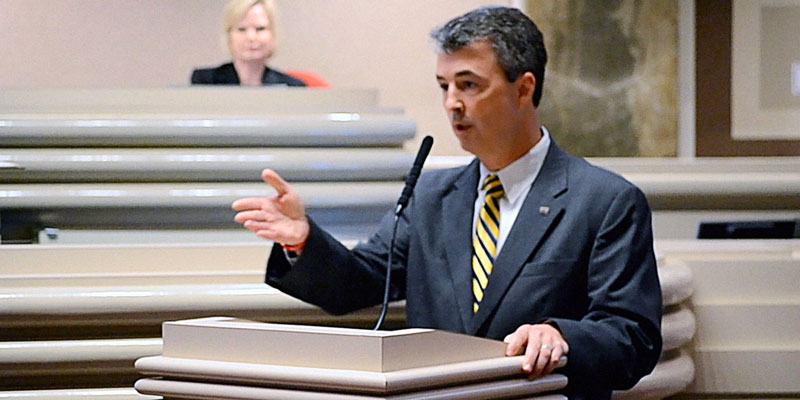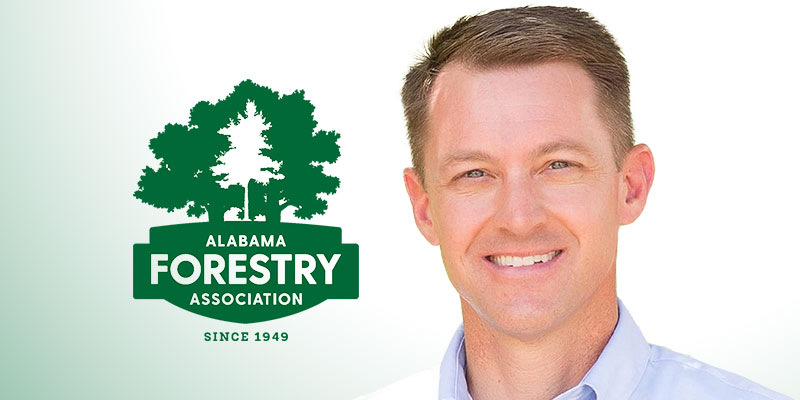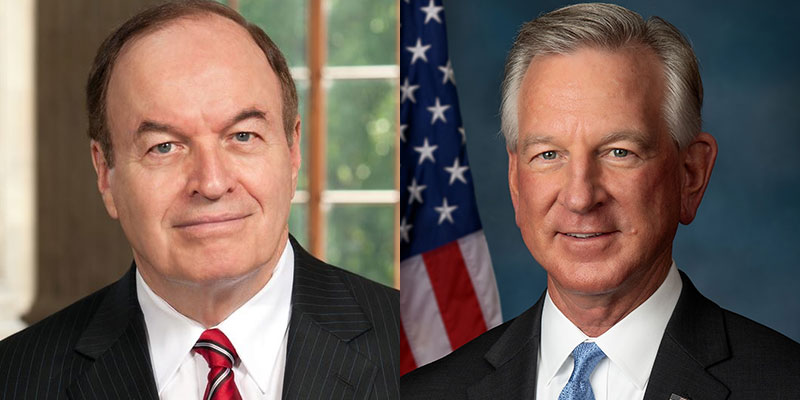Attorney General Steve Marshall and Alabama job creators are praising the United States Supreme Court’s 8-0 decision this week in Weyerhaeuser Company v U.S. Fish and Wildlife Service, better known as the “dusky gopher frog case.”
In the decision, the highest court in the nation sided in favor of a lawsuit brought by Alabama and 17 other states challenging the federal government’s ability to designate land as a “critical habitat” for a species that does not and cannot live on the land.
“Today’s decision is a victory for fairness and common sense and a loss for overreaching federal bureaucrats,” Marshall said in a press release.
The attorney general explained, “At issue is the question of whether the federal government, acting under the authority of the Endangered Species Act, could extend the reach of a critical habitat beyond the area currently occupied by a species at risk. Under President Obama, the federal government vastly expanded the definition of what constitutes a critical habitat, going even beyond the boundaries of what is considered habitable for an endangered species to include areas that may never be inhabitable by that species.
“This unprecedented action would bestow upon the federal government the power to claim essentially any land as critical habitat for practically any endangered species. Given the potential impact of such a federal expansion over Alabama’s agriculture, timber and mining industries, it was vital that we oppose this federal land grab all the way to the U.S. Supreme Court,” Marshall added.
In its decision, the Supreme Court held, “Only the ‘habitat’ of the endangered species is eligible for designation as critical habitat. Even if an area otherwise meets the statutory definition of unoccupied critical habitat because the Secretary finds the area essential for the conservation of the species, [the law] does not authorize the Secretary to designate the area as critical habitat unless it is also habitat for the species.”
Marshall was joined in applauding the decision by Alabama Forestry Association Executive Vice President Chris Isaacson and National Federation of Independent Businesses (NFIB) Alabama State Director Rosemary Elebash.
In a statement to Yellowhammer News, Isaacson said, “Federal regulations under the Endangered Species Act represent one of the greatest threats to landowners and the practice of forestry in the South. This decision represents the first step in reining in federal encroachment on the property rights of forest landowners. We are extremely grateful for the key role Alabama Attorney General Steve Marshall played in this successful outcome.”
On August 15, 2017, Marshall led 17 other attorneys general in filing an amicus brief asking the Supreme Court to overturn a prior decision by the U.S. Fifth Circuit Court of Appeals that upheld the ability of the federal government to expand critical habitat areas. Marshall and the other states further argued that the federal court ruling actually violates the Endangered Species Act’s own limitations on the designation of unoccupied land as critical habitat.
The case originally stemmed from a federal designation of land in Lousiana, that the dusky gopher frog has not inhabited in decades, as a critical habitat for the species. Justice Brett Kavanaugh did not participate in the decision, as he was not seated on the court when it heard oral arguments.
In November 2016, under the leadership of then-Attorney General Luther Strange, Alabama led 18 states in a separate lawsuit against the National Marine Fisheries Service, the U.S. Fish and Wildlife Service and the Secretaries of the Interior and Commerce to challenge the same Obama Administration rules that purported to allow the federal government to designate land as habitat on which an endangered species does not and cannot live.
After the Trump administration agreed to withdraw these objectionable rules, Alabama settled that lawsuit in March of this year.
In an interview with Yellowhammer News, Elebash explained that NFIB had filed an amicus brief of its own in the dusky gopher frog case that was decided this week.
“We were very pleased with the outcome of the case,” she said, adding that it was a win for private property rights, as well.
Elebash further advised that the difference between the Obama and Trump administrations has been night and day when it comes to overreaching, job-killing regulations.
“There’s no question about it – we are at a 45-year high in our monthly survey with business owners having hope and confidence,” Elebash noted. “With the Trump Administration, reducing the number of rules and regulations and setting the standard – just like in this case – has had a huge impact on business optimism.”
Now, the challenge for Alabama businesses (as with the national trend) is finding qualified workers to allow companies to grow and thrive.
Elebash outlined, “Our number one problem is finding qualified employees. So, business owners are looking to expand, they want to grow their businesses. But in order to do that they’ve got to have employees that have the right skills.”
Sean Ross is a staff writer for Yellowhammer News. You can follow him on Twitter @sean_yhn












